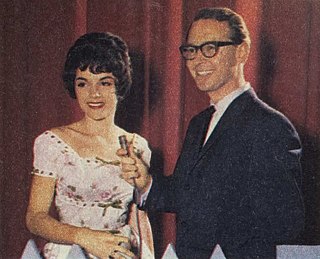Related Research Articles

Candid Camera is an American hidden camera reality television series, with versions of the show appeared on television from 1948 until 2014. Originally created and produced by Allen Funt, it often featured practical jokes, and initially began on radio as The Candid Microphone on June 28, 1947.
Lifetime is an American basic cable channel that is part of Lifetime Entertainment Services, a subsidiary of A&E Networks, which is jointly owned by Hearst Communications and The Walt Disney Company. It features programming that is geared toward women or features women in lead roles. As of January 2016, it is received by 93.8 million households in America.

The Seven Network is a major Australian commercial free-to-air television network. It is owned by Seven West Media Limited, and is one of the five main free-to-air television networks in Australia. The network's headquarters are located in Sydney.

Television in Australia began experimentally as early as 1929 in Melbourne with radio stations 3DB and 3UZ, and 2UE in Sydney, using the Radiovision system by Gilbert Miles and Donald McDonald, and later from other locations, such as Brisbane in 1934.

Andrew Christopher Denton is an Australian television producer, comedian, Gold Logie–nominated television presenter and former radio host, and was the host of the ABC's weekly television interview program Enough Rope and the ABC game show Randling. He is known for his comedy and interviewing technique. He is also responsible for introducing the troupe of The Chaser to Australian audiences.
ADS is an Australian television station based in Adelaide, South Australia. It is owned and operated by Paramount Networks UK & Australia through their Australian holdings Network 10.
Autumn Affair is an Australian television series made by and aired by Network Seven station ATN-7, and also shown in Melbourne on Nine Network station GTV-9. Television in Australia had only been broadcasting since 1956 and Seven was the first commercial station to make drama a priority. It premiered 24 October 1958 and continued until 1959. The series was the first ever Australian television soap opera. It was also the second regular Australian-produced dramatic television series of any kind, with previous locally produced drama consisting of religious series The House on the Corner, and one-off plays largely aired on ABC.
The Story of Peter Grey was an Australian television daytime soap opera produced by the Seven Network and first broadcast in July 1962. James Condon starred in the title role as a church minister.

Whiplash was a British/Australian television series in the Australian Western genre, produced by the Seven Network, ATV, and ITC Entertainment, and starring Peter Graves. Filmed in 1959-60, the series was first broadcast in the United Kingdom in September 1960, and in Australia in February 1961.

Bandstand is an Australian live pop music, variety television program screened from November 1958 to June 1972. Featuring both local and international music artists, and produced in-house at the studios of the Nine Network in Willoughby, New South Wales, it was originally broadcast only in New South Wales, It became a national program in the early 1960s as the network expanded into other Australian states. The host of Bandstand for its entire existence was radio presenter and television newsreader Brian Henderson.

Stormy Petrel is an early Australian television drama. A period drama, the 12-episode serial told the story of William Bligh and aired in 1960 on ABC. It was the first live TV serial from the ABC.
Hal Lashwood's Alabama Jubilee was an Australian television variety series hosted by Hal Lashwood which aired from 1958 to 1961 on ABC Television. It was essentially a minstrel show, with some of the performers appearing in blackface makeup. In 1960, it was retitled Hal Lashwood's Minstrels.
Fun Farm was an early Australian television series. It debuted on 29 October 1956, and was aired live on Nine Network Sydney station TCN-9.
Make Mine Music was an Australian television series, which aired in 1962, from 28 May and ended circa 21 December. It was produced and broadcast on Melbourne station HSV-7, but was also shown on Sydney station ATN-7. The show was a daytime sing-along music program, which also featured a musical quiz and solos. The program aired live. It was compered by Ron Cadee, with others on the show including Jocelyn Terry, Graeme Bent, and John D'Arcy. The series aired five days a week.

"They Were Big, They Were Blue, They Were Beautiful" is an Australian television movie, or rather a live television play, which aired live on 27 June 1959 in Sydney, and on 8 August 1959 in Melbourne. It aired as part of Shell Presents, a monthly presentation of standalone productions which aired from 1959 to 1960 on ATN-7 in Sydney and GTV-9 in Melbourne.
Fashion Digest is an Australian television series aired 1960–1961 on Sydney station ATN-7, and also aired on Melbourne station GTV-9. The series featured Sylvia Rapley, who had a regular segment on the series Your Home. Fashion Digest was a weekly series aired in a 15-minute time-slot.
The General Motors Hour was an Australian radio and television drama series.

The Life and Death of King Richard II was a 1960 Australian live TV production of the play by William Shakespeare directed by Raymond Menmuir. It aired on 5 October 1960 and was one of the most elaborate productions made for Australian TV at that time.
"Johnny Belinda" was a 1959 Australian TV adaptation of the 1940 play by Elmer Harris which had been filmed in 1948. It was the first "live" one hour drama on commercial television in Australia.
References
- ↑ "Sunday Television". Radio/TV Supplement. The Age . 7 July 1960. p. 8. Retrieved 28 August 2014.
- ↑ "Dirt-under-the-carpet problem on TV". The Australian Women's Weekly . Vol. 28, no. 3. Australia. 22 June 1960. p. 59. Retrieved 5 September 2014– via National Library of Australia.